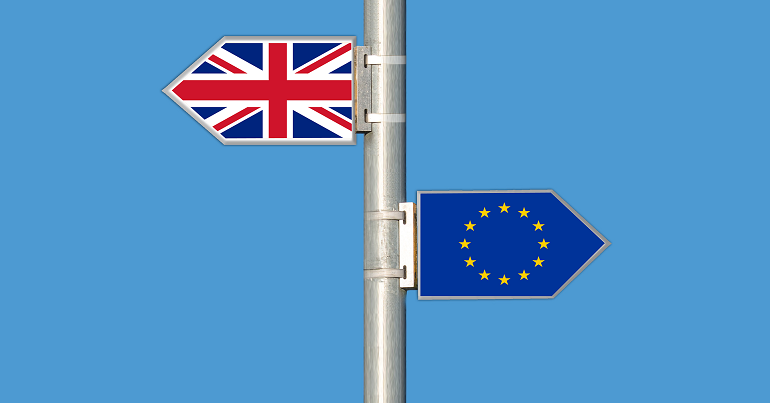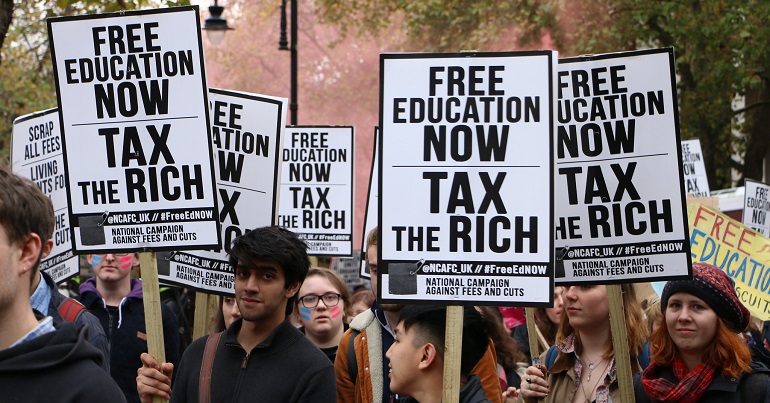Boris Johnson’s Brexit deal is only the first step in the Brexiteer plan for Britain

On December 30, MPs passed Boris Johnson’s Free Trade Agreement with the European Union. There was extremely limited time and space for scrutiny – of a document running to almost 1,300 pages with over 800 pages of annexes. One convenient function of the government’s strongarm tactics was to circumscribe the opposition’s space for manoeuvre; at any rate, these late stages were always unlikely to see anything amounting to serious parliamentary opposition.
The general atmosphere among the opposition could be described as a cocktail of frustration, anger, and relief. Frustration and anger at seeing the immediate impacts of the deal meted out, including several which have been anticipated for some time. There can be no doubt that the agreement itself restricts certain freedoms for people which, although critically flawed and always limited in their application, were worth defending and extending.
But beneath a subtle sense of relief can be detected, stretching across and covering a diverse array of Labour political figures. For Keir Starmer’s Labour leadership, there is a hope that by acquiescing to the deal itself and criticising its elements, they can neutralise the Brexit debate’s most polarising elements and return the debate to ground on which Labour feels more comfortable. For those on the left, there is a hope that Brexit can finally be buried as a dominant political issue. Considering the role that Brexit seems to have played in wedging apart the coalition that Corbyn’s Labour was relying on to secure an electoral victory, this hope is entirely understandable.
Both senses of relief depend on the belief that with the passage of the free trade agreement, the salience of Brexit as a political issue will gradually reduce. Getting around Brexit and refocusing general public attention on something else (whether wealth inequality or NHS funding) has been the goal of left elements, but that goal now feels more attainable than ever. As a friend said to me recently, it seems that Brexit simply won’t be a big deal in 2024. Why make a Brexit deal that is bound to be implemented anyway a point of conflict, when you can focus on other things and build a coalition around them?
Unfortunately, this way of thinking has very shaky foundations. We have very little reason to think that the question of the UK’s relationships in global trade – including with the European Union – will reduce in its salience to overall political discourse. Instead, we can expect to see its prominence in mainstream political debate remain steady and even grow over the coming months and years.
The key mistake is in thinking that the final cause of Brexit as a project was a free trade agreement with the European Union itself. Its purpose was not simply the adjustment of Britain’s trading relationship with Europe. Rather, it was to redefine and reimagine the UK through its self-conceived role on the world stage. The route they propose for Britain out of its former colonial melancholy is for it to reimagine itself as a ‘frontier’ nation (‘Australia-style!’), mixing a sort of revived imperial adventurism with a heady tech-futurism that stakes its success on growth in emerging markets. The EU and its institutions frustrate this vision, both practically and ideologically, and so must be escaped. The Brexiters’ article of faith that by hitching itself to engines of growth in emerging markets the UK will leave stodgy Europe in its dust is the economically daft, but quite obvious practical expression of this ideological project. This is what ‘control’ means, and its bounty is to be shared with the so-called ‘deserving’ Britons who are part of this national endeavour.
In this scheme, the free trade agreement with the EU is not the end but the beginning. Both it, and the UK’s trade and diplomatic relationships with other countries around the world, are to be contested vigorously in the coming years. Indeed, so much is clear from the language used by the deal’s proponents (escaping the “lunar pull” of the EU, for the gravitational orbit of Anglo-American capital), which entails future struggles by Britain’s ruling class to redefine the UK by its opposition to social, environmental and labour standards in favour of buccaneering global and domestic exploitation. Both the UK and the EU have already committed themselves to reviewing these terms of trade within four years, intimating that they are intended to be dynamic and not static.
This is also expressed in the mechanics of the deal. The ‘ratchet clause’ originally proposed by the EU was a red line for the UK government exactly because it would have meant the abandonment of Brexit’s animating purpose: the long-term divergence from anything resembling basic standards and human rights protections. Instead the mechanism they have secured deliberately creates space for the kind of conflict this government loves the most. The IPPR’s initial analysis of the proposed agreement demonstrates that this deal was designed to allow long-term divergence to occur on terms the UK government may decide in the coming years.
Not only is ‘Brexit’ (in any case, the project and project of national reimagination it stands for) not over, but it will be deployed ever more enthusiastically by its proponents. As a Tory prime minister puts the NHS, medicine regulations, and public services at large on the table in trade negotiations, they will describe themselves as realising this project in all its horrible and exploitative aspects. As undeniably, independently popular labour and environmental protections go under the axe to facilitate new trade deals, the government will claim to be delivering on the picture of Britain they have painted. Opposition to these things, then, cannot simply be piecemeal and without reference to the picture or project for which they stand. Opposition must form part of a cogent opposition and alternative to it.
The stage is set for a “forever Brexit” battle, and for as long as we do not challenge this government’s image of who we are and what our driving purpose is as a demos, we will have serious trouble building a coherent opposition to its policy entailments.
Setting aside this Commons vote on the free trade agreement, we cannot simply accept the premises of this government’s Brexit project and hope that the conclusions never arrive. Equally, hoping for Brexit to recede into the political background as the government sets about realising its real purpose is wishful thinking. The heady mixture of adventurism and nostalgia Brexit’s supporters have concocted is not going anywhere, and there is no reason why it cannot continue to serve as a useful wedge issue for this government either.
The liberals will continue to be liberals and their form of pro-Europeanism will continue to miss the point. But frustration with them, with Unite to Remain, with the Green Party’s shameful participation in it, with Keir Starmer’s inconsistency and hypocrisy as Remain Ultra turned Brexit arch-pragmatist; none of these things are arguments for ignoring what this trade agreement means and represents.
We have the fight of our lives ahead of us – and this time we are not fighting with severely qualified enthusiasm for membership of a European Union which was and remains critically undemocratic and unequal. We are fighting for trade justice, labour justice, environmental justice and so much more both at home and globally. Winning these fights means responding to this government’s first fusillade not with indulgent quasi-relief, but with clear-eyed understanding of how this deal figures practically and ideologically in the project this government is undertaking. And in whatever form, as a first step it means calling out and standing against this Brexit deal.
PS. We hope you enjoyed this article. Bright Green has got big plans for the future to publish many more articles like this. You can help make that happen. Please donate to Bright Green now.
Image credit: Elionas2 – Creative Commons




How can we “stand against” the Brexit deal? We can say leaving the EU was a grievous mistake, and we can stand against the absurd but dangerous dream of a concocted new/old buccaneering Britain. But the Brexit deal is signed and sealed, although there is a huge amount of detail like the trail of a meteor which will keep coming up. This cannot be ignored, but should not be our main focus.
Our main focus should be on social justice, moving on from the fight for numerous minority injustices to a general fight for radical redistribution of wealth through Universal Basic Income, the precondition for an effective fight against the forces leading the world to ecological disaster. That might even give “Britain” a new leading identity, this time a real one, one to be proud of, if people need this.
Then, no doubt, there will be the need to join hands in some new form with the “world community”, which in no way has Britain left anyway, being tied by myriad legal, economic, etc obligations.
Brexit, that ugly word, rouses unwelcome images of Farage and Johnson, and the ugly faces of angry frustrated, confused people who have lost their identity, is done.
Let’s try to show the way forward, not try to repair what is done.